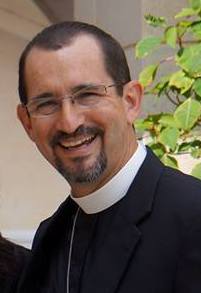Fourth Sunday in Lent
Sunday, March 31, 2019
Lectionary C
Luke 15:11-32
How do you sum up this parable in 500 words? Well … you don’t … instead, let’s see if you can find your place in the story and let the parable do what parables do: work on your heart in a personal way.
I’m the oldest of three sons. To give some context to the meaning of being a “son” in our family, my grandson makes eight generations of ALL BOYS in the Sorvillo family! Not one daughter. My brothers and I are the sixth generation in that line. Yes, please offer prayers for our wives and mother who have to put up with the testosterone overload! Lol.
in saying this, I’m very familiar with the father-son-brother dynamic of this parable. In fact, in the Sorvillo family, the three sons have pretty much covered the personality characteristics of the brothers in Luke 15. As the oldest, who inevitably followed in his father’s footsteps, I can understand the position of the oldest son in the parable and, embarrassingly, I’ve acted the same way on occasion.
My youngest brother has been, what I call, our “Hemingway” of the family. He left the house at 19 to find his path in New York City, which led to living with Sioux Indians in North Dakota, which led to him living in an Ashram in India for over a year, which led him to … you get the picture. Our middle brother found a middle way (very Anglican). He’s a very faithful man who loves the Lord and is active in his faith but was not called into ordained ministry and has worked in the corporate world.
Let it be said, I LOVE my brothers. We have had the blessing to grow into our relationships as adults and have found great friendship. A blessing to be sure. But Thanksgiving dinner conversations are never dull!
What I ask of you is for you to put yourself in the parable. Who do you connect with? Who challenges you? How would you, if anything, do it differently, and why? If you’ve never read Kenneth Bailey’s book, The Cross and the Prodigal, I highly recommend it for deeper insight into the cultural impact of this parable. The image of the father, the actions of the father and his willingness to love without reservation or embarrassment brought me to tears. Bailey’s explanation of the father’s behavior, through the lens of the cultural mores of Israel, will give you a whole new appreciation for unfathomable love! No toxic masculinity here, just overwhelming, unconditional love and sacrifice.
 I’ve done my best to live this out with my brothers, my sons, and now my grandson because I want them to feel the same love from me, that I’ve felt from my own father … and from my Father in heaven!
I’ve done my best to live this out with my brothers, my sons, and now my grandson because I want them to feel the same love from me, that I’ve felt from my own father … and from my Father in heaven!
And, maybe, that’s the simplest point: no matter our difference in personality, family position, or journey of life, there is a God who loves us, chases us, desires us and is always ready to welcome us home.
– The Rev. Dr. James A. Sorvillo is rector of Church of the Ascension in Orlando.

